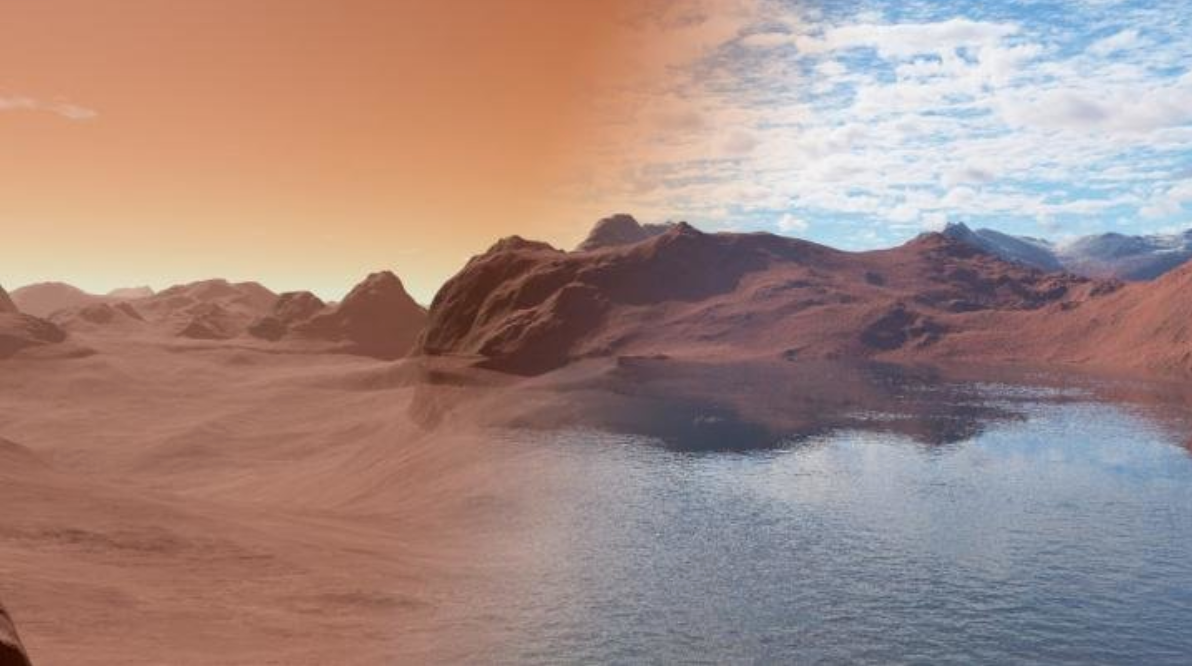Two recent new articles have shed light on why there is, presumably, no life on Mars. Although today's Martian surface is barren, frozen and uninhabitable, a trail of evidence points to a once warmer, wetter planet, where water flowed freely and very likely life had thrived.

This is image shows modern Mars (left) dry and barren, compared with the same scene over 3.5 billion years ago covered in water (right). The rocks of the surface were slowly reacting with the water, sequestering it into the Martian mantle leading to the dry, inhospitable scene shown on the left.
Credit Jon Wade
The conundrum of what happened to this water is long standing and unsolved. However, new research published in Nature suggests that this water is now locked in the Martian rocks.
Scientists at Oxford's Department of Earth Sciences, propose that the Martian surface reacted with the water and then absorbed it, increasing the rocks oxidation in the process, making the planet uninhabitable.
Previous research has suggested that the majority of the water was lost to space as a result of the collapse of the planet's magnetic field, when it was either swept away by high intensity solar winds or locked up as sub-surface ice. However, these theories do not explain where all of the water has gone.
The overarching message of Dr Wade's paper, that planetary composition sets the tone for future habitability, is echoed in new research also published in Nature, examining the Earth's salt levels.
Why didn't earth experience the same change?
As to the question of why Earth has never experienced these changes, Dr. Wade said: 'Mars is much smaller than Earth, with a different temperature profile and higher iron content of its silicate mantle. These are only subtle distinctions but they cause significant effects that, over time, add up. They made the surface of Mars more prone to reaction with surface water and able to form minerals that contain water.
